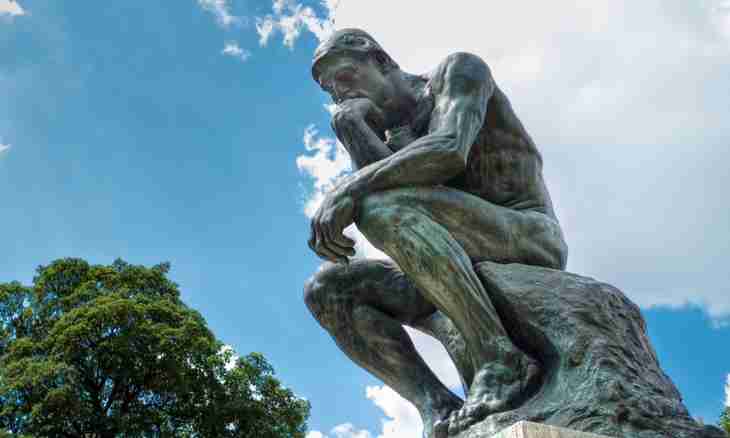Laying claim to the queen of sciences, but not being recognized as scientific discipline; investigating the most general principles of the structure of the world, but not making the conventional results, the philosophy still does not give the answer to a question of what is philosophy.
There is a huge number of the definitions of philosophy given in various times by the cleverest and most famous representatives of mankind. But among them there is no standard or, at least, characterizing it however that was full. One of the most popular beliefs in the modern scientific environment is the thesis that the philosophy cannot be defined at all quite precisely as its comprehensive investigation by means of certain methods and the practician for this purpose would be required that in itself is philosophical process. The term "philosophy" arose in Ancient Greece from merge of two words:????? and?????, meaning "love" and "wisdom" respectively. Thus, literally????????? it is translated as "love for wisdom". It is considered (thanks to Diogenes Laertsky's certificates) that this term was thought up by Pythagoras. However directly it is not documented. However, already Heraclitus freely uses the word "philosophy" in the compositions. Thus, historically the philosophy is represented as the special type of outlook forming in the person the certain approach to perception of life and a material world directed to identification of an essence of the phenomena and processes, search of the most general regularities and answers to the most general questions. For ancient thinkers the philosophy was one of the main ways of the knowledge expressed in the form of activity. An experiment and a logical conclusion, being combined within the philosophical directions, gave rise to the main fundamental sciences. Therefore often carry to sciences also philosophy. Disputes on whether it is possible to recognize philosophy as scientific discipline, do not cease still. With science the philosophy is united by origin, a perspective and the research vehicle based on logic. Including a set of independent sections, disciplines and the directions, having own methods of knowledge, the philosophy, nevertheless, does not report results, to satisfying one of the main criteria of scientific character - to existence of a basic possibility of their experimental denial (falsification). However, today it is possible to speak with confidence that the philosophy is closely weaved with scientific knowledge. Within the practical direction there is a set of the disciplines devoted to separate sciences (for example, history philosophy, philosophy of ecology and even philosophy of philosophy). Thus, in a sense it is possible to call philosophy metascience, science about sciences or the general theory of knowledge.

